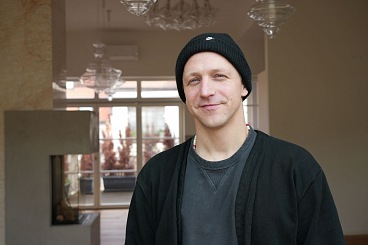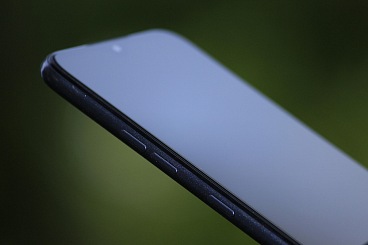Fast Confession - Plastic Surgeon Patrik Paulis: Plastic surgery hasn't suffered any losses due to the coronavirus
Patrik Paulis is one of the leading Czech plastic surgeons, he's distinguished not only by his famous French manners or way of operating, but also by being the celebrities' "favorite". Stars such as members of AC/DC, Black Sabbath, Depeche Mode, Duran Duran, Genesis, Guns N 'Roses, Pearl Jam, Red Hot Chili Peppers, David Bowie, Madonna, Shakira, Eric Clapton, Lionel Richie and many others all belonged to his patients. In this interview for LP-life.com, the doctor confided in us how difficult it is to open a new clinic in this era or how he perceives the work of his colleagues.
It's Saturday and you're sitting in your office, why?
Because I'm a hardworking person. (laughs) And also our marketing team asked me to. We're doing some marketing maneuvers, I don't get in their way. We all do our jobs and I believe we have the best people in marketing on it, so I listen to them.
Do you think you still need marketing?
We opened a clinic at the most inopportune time. Originally, we wanted to open on April 1st this year with the slogan "And it's not April Fool's". In the end, we opened on June 1st, when the first wave of covid wasn't completely over, but the second wave hadn't started yet. I think that our concept is completely unique and it needs to be presented. My goal is not to get a person to the operating room, but to help them. Plastic surgery in the sense of aesthetics is only one of the pillars of aesthetic medicine in general, I prefer the word anti-aging medicine, although in this country, I think it's quite profaned now.
Our goal at the moment is to present a conceptual client care and I think that's a lot of work. Many people have not yet come to understand this, or they've gained warped ideas over the years that you just come to a "plastic surgeon", he performs a surgery on you and you don't need to take care of yourself anymore. Every surgeon knows that surgery is the riskiest thing there is in medicine. Operation should be the last resort. Nowadays, aesthetic surgery is only one of the options in aesthetic medicine, we have a whole set of options at our disposal.
I meant that you, as a plastic surgeon, you are not unknown, you've had a number of clients, famous clients. Do you still need marketing to be even more known? Is it still possible at all?
I am part of a team. I may be its captain, so to speak, but it's still about the whole team.
But, nowadays, people are afraid to go out even to the doctor's office, they're afraid they'll catch something there...
It's a paradox, because many people will think that since they're working from home, now its the time to get some work done on them. Say, behind one client who's afraid and cancels ä consultation or surgery, there are two more who will turn up.
But getting beautified isn't cheap. Has plastic surgery felt the coronavirus crisis financially?
I think it's an investment for many people because there are professions where you present your body and face and looking good is part of the business nowadays. People invest in themselves, I don't feel like they invest any less now. Maybe that's why, at our clinic, we try to offer them sensible things for their money that lead to the results they ask for, even though in some cases it may be something else than what was their initial idea. It's rather that people now have more time to make the right choices. There are clients who, of course, will decide that they can't undergo a surgery now. But that's one client, and there are two more instead, who now have the time and money to do it. I don't feel like we're short on clients because they need to save money.
How many operations did you perform in October?
I don't know the exact number, but I usually operate two days a week and I have about five clients, each has one or two operations.
What about Czech celebrities? You are known for operating on the famous.
I wouldn't quite say it like that. Maybe I've operated on some people who didn't want it to be obvious and anyone to know about it, of course we won't talk about those. When I do marketing with a celebrity, I take it as a necessary evil, rather than it being the case. I don't think we have a cult of a star surgeon here. The world-famous Ivo Pitanguy, who went so far as to be the main celebrity of the carnival in Rio for one season, that's already a bit overboard.
I read that you were on stand by to some celebrities when they were on tour, how?
This is quite a funny story, it's been a few years. As a starting surgeon, a friend who works at our largest promotional agency came to me, saying that the band Rammstein, who was still relatively unknown at the time, performed here as openers for AC/DC and demanded a doctor on site, at a concert at Strahov.
In case someone fainted?
No, for the band, not for the fans. It was explicitly for the band to have a doctor on hand. As a starting surgeon, I was interested in the offer, because it was, of course, very exciting in all aspects. In addition, I love art and music, so the opportunity to be with them was very nice. Basically, my first client was the singer Lindemann from Rammstein. I brought some oxygens for AC/DC and I quickly understood they were joking with all those demands.
What did they demand?
An oxygen tent, palm trees, sand, pool, a lot of other stuff. They thought it was hilarious, later.
Because they got it?
Because they got it, I got to hang out with them afterwards, they were pretty cool. Over time, the current owner and director of our largest promotional company, Mr. Robert Porkert, has become my friend over the years. So in this way, I quite enjoyed meeting artists, thanks to Robert I had the opportunity to visit concerts around the world and see amazing people up close, find out who is nice and who acts like a big shot.
Who is nice?
The vast majority. Who surprised me was Tom Jones, for whom we took care of his vocalist. He came to us afterwards, opened a bottle of red wine, had a glass with us and thanked us. Of course, there are also chronic users of some medicaments or substances that are very difficult to deal with.
Did you give them the medication?
We only give these people medication that, for instance, reduces swelling that prevents them from singing, or some vitamins for nerves and the like. But if they want something before or after, we don't do that. Of course, we ask for information on what they took. But I think the older the rockers are, the more they're experienced and the less they use.
Dr. House from the show says that all patients lie. Did you meet a star that lied about the stuff they took?
The information usually comes from the management and they usually know very well what we need to know. So we're aware of what they take.
How do they treat you as a Czech doctor, do they trust you?
The performers themselves have always treated me very nicely and their requirements for me are really completely standard. As for the trust, of course, I had to gain it at the beginning. The tour manager often decides who can treat the performer. But I can tell you one funny tidbit. A manager of a foreign agency had the flu years ago, so I was referred to him. I was on hand at the time and shortly before that I had treated the performer who was to perform that evening. The reaction of the sick Englishman was almost insulting, he refused my help and said something along the lines that he'd rather be treated by an English veterinarian than by a Czech doctor. I consider it a great success, that the same person requested a consultation with me, some time ago, about his son's operation.
Years ago, Ozzy Osbourne performed at the Sazka Arena (now O2 Arena). For a layman, he seems like a tough nut to crack.
I admit that when I first came to Ozzy's dressing room years ago, I was a little unsure what to expect. Now I had him as a "patient" for the fourth time and Ozzy still surprises me. This time he surprised with his amazing condition, he was perfectly oriented, he wasn't in a need of anything at all and our short pre-concert medical consultation was more like a friendly conversation.
So can you tell us who was the "toughest" patient?
I sweated a lot over David Bowie during his last concert here. A lot has been written about it, but I can tell you that the published information wasn't even close to the reality. With regard to the patient confidentiality, I will only tell you that his problems appeared a few days before the concert in Prague and here he was very thoroughly examined both before and after the concert, among others also by Associate Professor Bojar or Associate Professor Kolář. Unfortunately, David didn't follow our recommendation for further examination and postponement of the concert in Germany. Axl Rose, for one, definitely belongs to the 'special patient' category.
When you have someone on your operating table, who is well-known in the rest of the world, how do you feel? Are you more nervous?
It is said that you shouldn't even operate on your own family. When my mom came to me, demanding a certain kind of operation, I told her it was nonsense. I told her which two operations my colleagues in Europe can perform for her. I wanted to send her to Paris for one operation and to Barcelona for another. But my wonderful nurses explained to her that I can do it just as well. So, since I already had my own mom on the table, I can say that I don't care anymore.
Aren't you more nervous when it comes to family?
No. Psychopathy might manifest itself differently, but perhaps every surgeon is in a way a psychopath, they cut a person and it becomes a drug for them (laughs). As you wrap it around with blue and see only the operating field, it's simply an operating field and that's it.
Is it a drug for you?
Definitely.
How do you balance the tension?
For me, surgery is not tension, for me it's a really pleasant feeling. I close myself in the room, the volume of my music is turned up in there. That's why I prefer surgery under a general anesthesia, because I can sing during it, but the whole team that's there with me suffers (laughs). For now, I enjoy it. When I stop enjoying it or it becomes stressful, I will stop doing it.
What would you do instead?
I don't know at all.
Don't you have some other interests in life?
Maybe I'd open a private gallery, that's interesting. Maybe I would trade in wine, I don't know. Or professional diving is cool, too. Some years ago, my friends and I received an offer to buy a diving base, but it was too far away. So wine, diving, art, one of those.
I miss women on that list…
I don't anymore (laughs).
In the Fast Confession, you said that you already had a beautification procedure done on you. Who are the ones you would trust with it?
It depends on who would do what. Everyone does something different, everyone is good at something else.
For instance, who would it be for liposuction?
That would be my colleague, Dr. Šimek. I think he's the best in the field for liposuction.
And if you need some work on the eyelids?
In Paris (laughs).
And what's your field of expertise?
I don't know, I enjoy breasts. I think I do them a little differently than other colleagues, I have a different philosophy. This, I think, is really a philosophical question.
And what is it?
A natural look. Nice, natural breasts. It's about a long conversation with a woman, understanding what she's actually expecting and what I can offer.


















